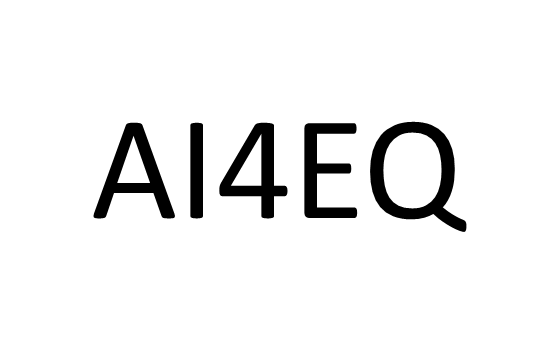References
- Alston, P. Report of the Special rapporteur on extreme poverty and human rights. UN. https://digitallibrary.un.org/record/1629536?ln=en . (2019). Accessed: May 15, 2020.
- Australian Human Rights Commission document, Human RIghts and Technology. Discussion paper, 2019.
- BBVA (2020) El trabajo en la era de los datos
- Benkler, Y. Don’t let industry write the rules for AI. Nature, 569(7755), 161-161. (2019).
- Bostrom, N. Strategic implications of openness in AI development. Global Policy, 8(2), 135-148. (2017).
- Brundage, M., Avin, S., Clark, J., Toner, H., Eckersley, P., Garfinkel, B., … & Anderson, H. (2018). The malicious use of artificial intelligence: Forecasting, prevention, and mitigation. arXiv preprint arXiv:1802.07228.
- Data Revolution Report. ‘A WORLD THAT COUNTS: Mobilising The Data Revolution for Sustainable Development. ‘ Presented to Secretary-General. https://www.undatarevolution.org/report/
- EU-Citizen.Science. The platform for sharing knowledge, tools, training, and resources for Citizen Science. https://eu-citizen.science/. Accessed: May 15, 2020.
- European Commision, Ethics guidelines for trustworthy AI. (2019). https://ec.europa.eu/newsroom/dae/document.cfm?doc_id=60419. Accessed: May 15, 2020.
- Floridi, L. Translating Principles into Practices of Digital Ethics: Five Risks of Being Unethical. Philosophy & Technology, 1-9. (2019).
- IEEE, Ethically aligned design. Tech. rep., IEEE. https:// ethicsinaction.ieee.org/ (2019). Accessed: May 15, 2020.
- International Telecommunications Union (2020) AI for good global summit 2020. https://aiforgood.itu.int/. Accessed: May 15, 2020.
- Jobin, A., Ienca, M., & Vayena, E. (2019). The global landscape of AI ethics guidelines. Nature Machine Intelligence, 1(9), 389-399.
- Leslie, D. (2019). Understanding artificial intelligence ethics and safety: A guide for the responsible design and implementation of AI systems in the public sector. The Alan Turing Institute.
- Luengo-Oroz, M. (2019). Solidarity should be a core ethical principle of AI. Nature Machine Intelligence, 1(11), 494-494.
- Morley, J., Floridi, L., Kinsey, L. & Elhalal, A. From What to How: An Initial Review of Publicly Available AI Ethics Tools, Methods and Research to Translate Principles into Practices. Science and Engineering Ethics, 1-28. (2019).
- Mueller, M.P., Tippins, D. and Bryan, L.A. The Future of Citizen Science. Democracy and Education, 20 (1), Article 2. (2012).
- Ochigame, R. The invention of “Ethical AI”, The Intercept. December 20 2019. https://theintercept.com/2019/12/20/mit-ethical-ai-artificial-intelligence/ Accessed: May 15, 2020.
- Organisation for Economic Co-operation and Development (OECD), May 2019. Recommendation of the Council on Artificial Intelligence. OECD/LEGAL/0449. https://legalinstruments.oecd.org/en/instruments/OECD-LEGAL-0449. Accessed: May 15, 2020.
- Quintanilla Fisac, M.Á.: Engaging technologies: criteria for an alternative model of technological development. In: Laspra, B., López Cerezo, J.A. (eds.) Spanish Philosophy of Technology: Contemporary Work from the Spanish Speaking Community, pp. 103–123. Springer, Cham (2018)
- Rahwan, I., Cebrian, M., Obradovich, N., Bongard, J., Bonnefon, J. F., Breazeal, C., … & Jennings, N. R. (2019). Machine behaviour. Nature, 568(7753), 477-486.
- Ryan, M. , Antoniou, J., Jiya, T., Macnish, K., Brooks, L., Stahl, B.C. ‘Technofixing the Future: Ethical Side Effects of Using AI and Big Data to meet the SDGs’. IEEE SmartWorld. (2019).
- Stilgoe, J., Owen, R., Macnaghten, P. 2013. “Developing a framework for responsible innovation”. Research Policy 42(9), 1568-1580.
- UN Global Pulse (2012) Big data for development: opportunities and challenges – White paper. https://www.unglobalpulse.org/document/big-data-for-development-opportunities-and-challenges-white-paper/ Accessed: May 15, 2020.
- UN, AI for Good Global Summit. Switzerland: UN. (2020). https://aiforgood.itu.int/. Accessed: May 15, 2020.
- UNICEF Global Innovation Centre, Generation AI. (2018). https://www.unicef.org/innovation/stories/generation-ai Accessed: May 15, 2020.
- Université de Montréal, Montréal Declaration for Responsible Development of Artificial Intelligence. Montréal: Université de Montréal et Fonds de recherche du Québec. (2018). https://www.montrealdeclaration-responsibleai.com/ Accessed: May 15, 2020.
- Vinuesa, R., Azizpour, H., Leite, I., Balaam, M., Dignum, V., Domisch,S.. & Nerini, F.F. The role of artificial intelligence in achieving the Sustainable Development Goals. Nature Communications, 11(1), 1-10. (2020).
- Von Schomberg, R. 2013. “A Vision of Responsible Research and Innovation?, in R. Owen, J. Bessant and M. Heintz, Eds., Responsible Innovation: Managing the Responsible Emergence of Science and Innovation in Society, Chichester, UK: Wiley, pp. 51-74.
- World Economic Forum, Harnessing artificial intelli- gence for the earth. (2018) http://www3.weforum.org/docs/Harnessing_Artificial_Intelligence_for_the_Earth_report_2018.pdf. Accessed: May 15, 2020.
- World Wide Web Foundation (2017) Artificial Intelligence: The Road Ahead in Low and Middle-Income Countries. Tech. rep., World Wide Web Foundation. https://webfoundation.org/docs/2017/07/AI_Report_WF.pdf Accessed: May 15, 2020.
- Zaragoza Declaration: For a Deontology in the Design and Interaction with Intelligent Systems (2019). https://www.fundacionzcc.org/es/noticias/publicamos-declaracion-zaragoza-deontologia-diseno-interaccion-sistemas-inteligentes-2496.html

